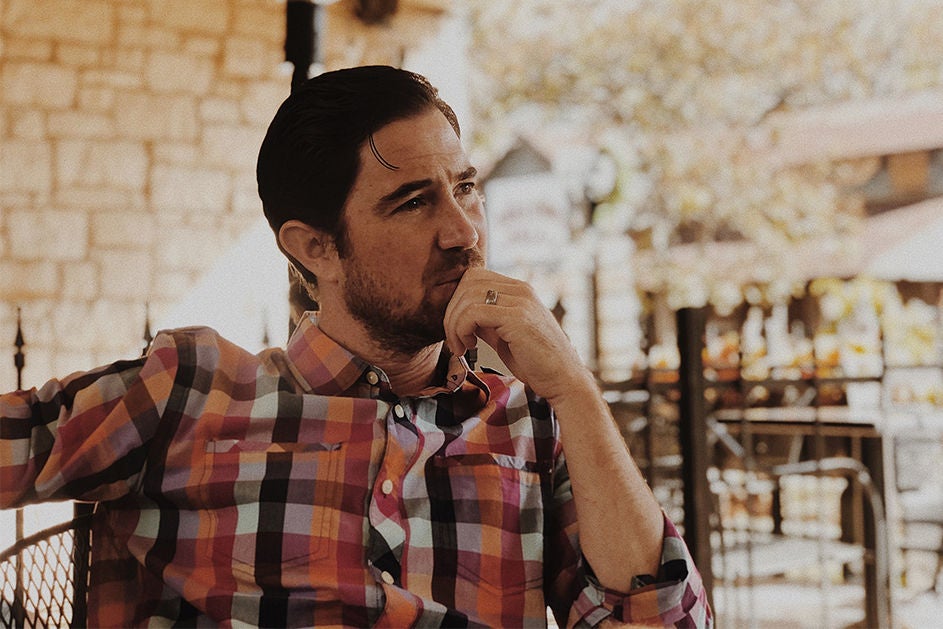In Queensland, you generally have 6 months from the date of the deceased's death to notify the estate of your claim. If you miss this deadline, it becomes significantly harder to make a claim, although exceptions might apply in certain cases. Additionally, you generally have 9 months from the date of the deceased’s death to file an originating application in Court.
| Australia’s #1 plaintiff law firm |
| No Win, No Fee claims |
| Client-focused support |
Australia’s #1 plaintiff law firm
No Win, No Fee for all claims
Client-focused support
Losing a loved one is hard enough without the added stress of contesting their Will. If you believe that a Will in Victoria does not accurately reflect the deceased's intentions or that you have not been adequately provided for, you may have grounds to contest it. At Maurice Blackburn, we understand the complexities of contesting a Will and are here to guide you through every step of the process.
Wills are contested for several reasons, often when an eligible person feels they haven't been adequately provided for or when there are questions about the Will's validity.
Common scenarios include:
- instances where an eligible person was excluded from the Will.
- belief that the deceased was unduly influenced when making their Will.
- concerns about the deceased's mental capacity at the time the Will was made.
- suspicions of fraud or forgery.
Example scenarios of Will disputes
- an eligible person believes they were not adequately provided for in the Will.
- a beneficiary claims the Will is invalid.
- the testator had impaired cognitive functions due to conditions like dementia.
For more insights, check out our blog post, "Thinking of contesting a Will? Then you need to know your legal rights" to understand how Will disputes are navigated.
Contesting a Will typically involves disputing the provisions made for beneficiaries or the distribution of assets. In contrast, challenging a Will focuses on the document's validity - often due to factors like lack of mental capacity, undue influence, or suspected forgery. Understanding this distinction is crucial when determining the best course of action.
In Victoria, the Administration and Probate Act 1958 outlines specific grounds for contesting a Will. The most common claim is what is known as a Testator's Family Maintenance (TFM) claim. This arises in circumstances where the deceased failed to make adequate provision for an eligible person.
In Victoria, certain individuals are eligible to contest a Will, including:
- Spouse or domestic partner of the deceased at the time of death.
- Child, stepchild or adopted child of the deceased (including children under 18, full‑time students aged 18–25, or persons with a disability)
- A person who, for a substantial period during the deceased’s life, believed the deceased was their parent and was treated by them as a child
- Former spouse or domestic partner of the deceased (in certain circumstances, e.g. if property settlement was not resolved
- Registered caring partner of the deceased
- Grandchild of the deceased
- Spouse or domestic partner of a child of the deceased, if that child died within one year of the deceased’s death
- A member of the deceased’s household at the time of death (or who had been and likely would have been a member in the near future)
If the deceased died before 1 January 2015, the law was less restrictive, and more persons (including more distant relatives or dependants) might have had standing to apply.
The costs associated with disputing a Will
The costs of contesting a Will can vary depending on the complexity of the case. At Maurice Blackburn, we understand that this can be a stressful and emotional process. That’s why we may be able to operate on a No Win, No Fee basis, meaning you don’t pay unless we win your case. While financial costs are one consideration, we also recognise the emotional toll these disputes can take and provide compassionate, ongoing support throughout the process.
Most common disputes
At Maurice Blackburn, we've successfully assisted clients in various scenarios. Here are some common types of disputes we handle:
- Exclusion from the Will: Clients who were not mentioned in a Will.
- Validity disputes: These involve concerns that a Will was made under duress, undue influence, or without the necessary mental capacity to make informed decisions.
Next steps in contesting a Will (VIC)
If you decide to proceed with contesting a Will, there are specific steps you should take:
1. Check that you are within the time limit to contest a Will
2. Gather evidence for Your claim
To contest a Will, you will need supporting evidence. This may include financial records, medical reports regarding the deceased's mental capacity, or documentation proving financial dependency. Please note that every case is unique, and gathering the appropriate evidence can be complex.
3. Get professional legal advice
FAQs on challenging Wills in Victoria
The cost varies depending on the complexity of your case. Maurice Blackburn operates on a No Win, No Fee basis, meaning you don’t pay unless we secure a positive outcome for you.
A Family Provision Claim, also known as a TFM claim, allows eligible individuals to seek provision from the deceased’s estate if they believe they were not adequately provided for in the Will.
Contact the executor or probate registry (if a grant of probate has been issued) to request a copy of the Will.
In Victoria, the law entitles certain people to inspect or obtain a copy of a deceased person's will, whether or not they are a beneficiary. Under section 50 of the Wills Act 1997 (Vic), the following people have a right to view the will: any person named in the will (or in any earlier will), including executors and beneficiaries; the deceased’s spouse or domestic partner; children, including stepchildren and adopted children; any person who would be entitled to a share of the estate if the deceased had died intestate (without a will); and anyone who may have a claim against the estate, such as a person intending to make a TFM claim.
To bring a TFM claim in Victoria, you will typically need to provide a range of evidence to support your case. This commonly includes your medical records (particularly if you have any physical or mental health conditions which affect your earning capacity or future needs), your financial records (such as income, expenses, assets, and liabilities), and comprehensive details about your relationship with the deceased.
This relationship evidence may include the nature and length of your connection, the level of emotional or financial support provided by the deceased during their lifetime, any history of care or dependency, and evidence of your role in their life (such as correspondence and photographs).
All of this material helps the court assess whether the deceased had a moral duty to provide for you, and whether adequate provision was made in the will or estate.
If the deceased did not leave a valid Will, their estate will be distributed according to the rules of intestacy set out in the Administration and Probate Act 1958 (Vic). These rules determine who is entitled to inherit based on a fixed order of relatives, typically starting with a spouse or domestic partner, followed by children, parents, and then more distant relatives. Importantly, the intestacy laws do not take into account the specific needs or circumstances of individuals who may have had a close or dependent relationship with the deceased.
However, even if you are not adequately provided for under the intestacy rules, you may still be able to contest the distribution of the estate by making a Testator’s Family Maintenance (TFM) claim.
You have six months from the grant of probate to contest a Will in Victoria.
Costs vary depending on the case's complexity, but Maurice Blackburn offers a No Win, No Fee guarantee, making it easier to pursue your claim without upfront costs.
Get expert help with a Will dispute
Expert legal advice is essential when navigating a Will dispute, whether you are contesting a Will or responding to a claim.
For decades, we’ve represented Australian families through Will disputes with care and understanding. With 98% of our cases resolved quickly and out of court, you can trust our expertise to protect your legal rights.
Contact us today for a confidential, no-obligation consultation to explore your options.
Need to speak to us sooner? Call us on 1800 111 222
Australia’s #1 plaintiff law firm
No Win, No Fee
Client-focused support
Contact our expert Wills team
We have
over 3,000
five-star reviews
Office locations
We’re here to help. Get in touch with your local office.
Select your state below
- VIC
- QLD
- NSW
- WA
- ACT
- SA
- TAS
- NT
We have lawyers who specialise in a range of legal claims who travel to Australian Capital Territory. If you need a lawyer in Canberra or elsewhere in Australian Capital Territory, please call us on 1800 675 346.
We have lawyers who specialise in a range of legal claims who travel to Tasmania. If you need a lawyer in Hobart, Launceston or elsewhere in Tasmania, please call us on 1800 675 346.



